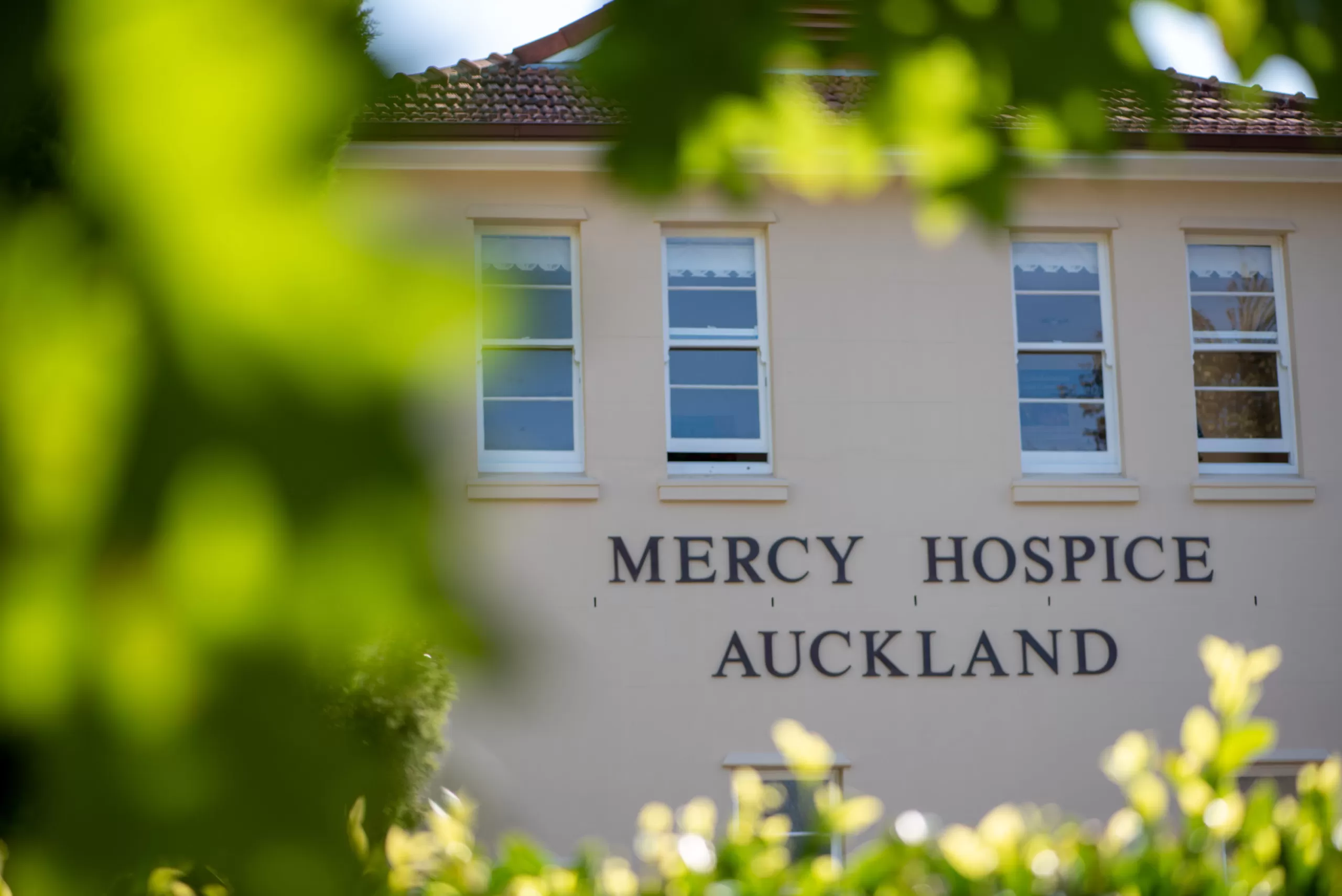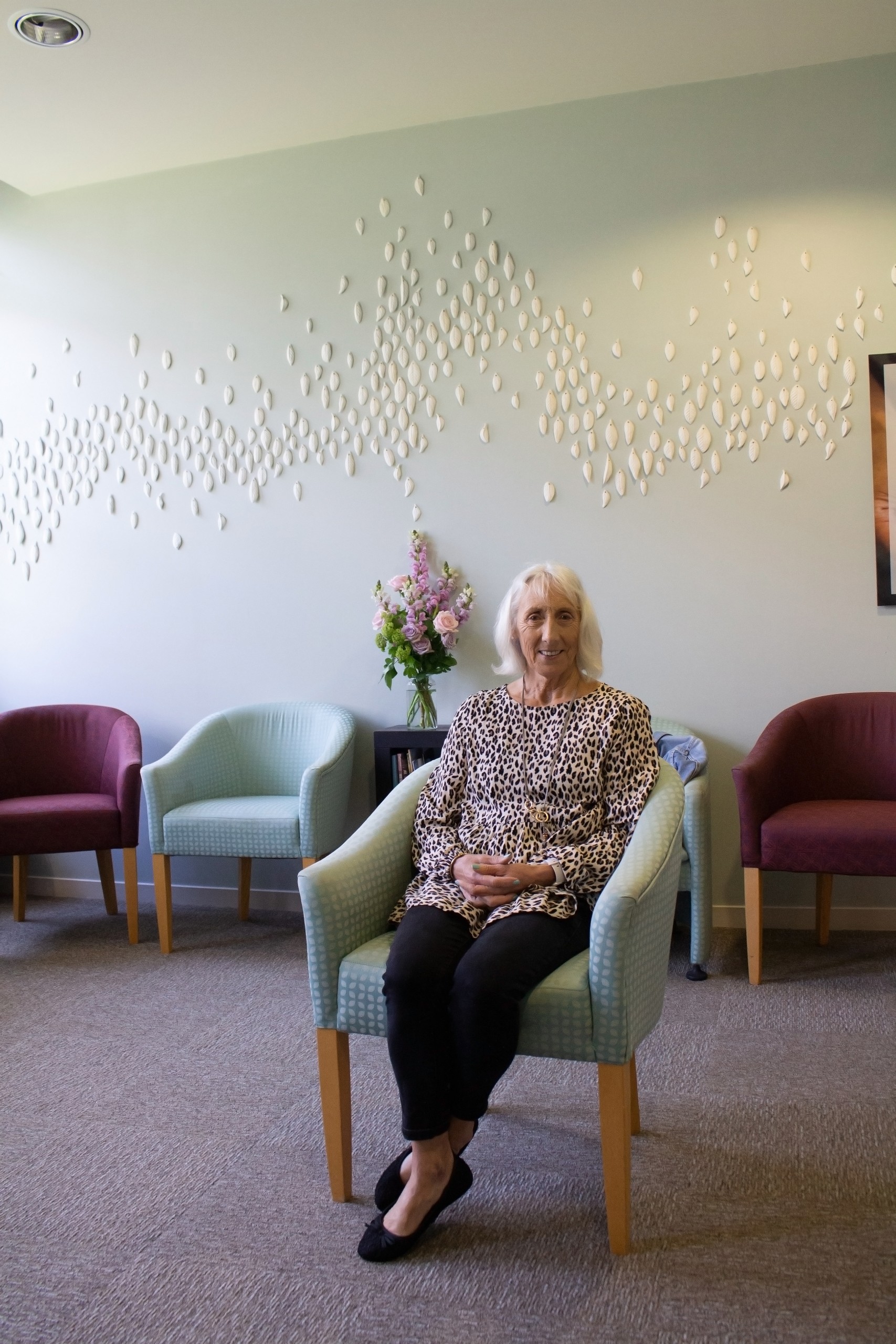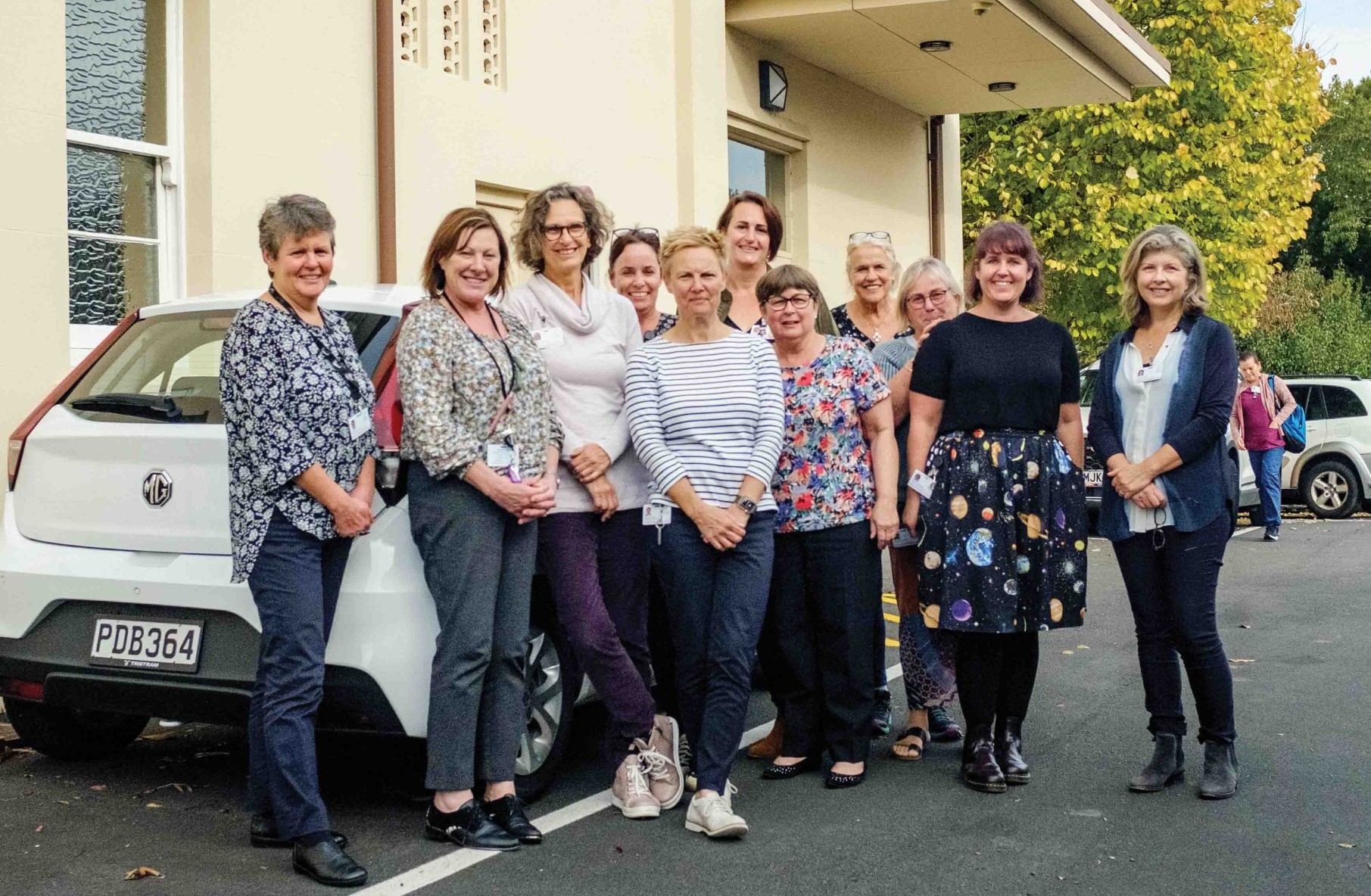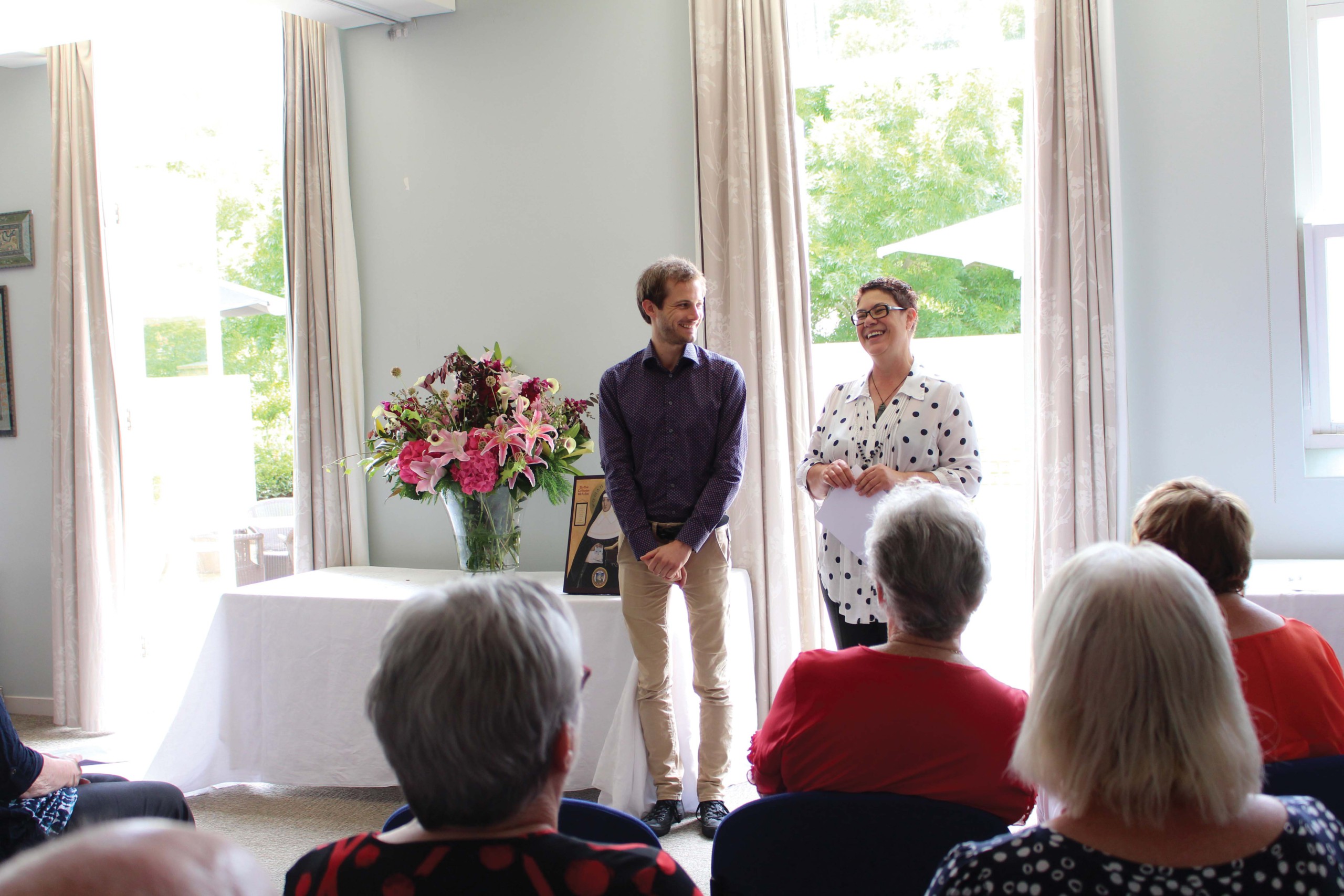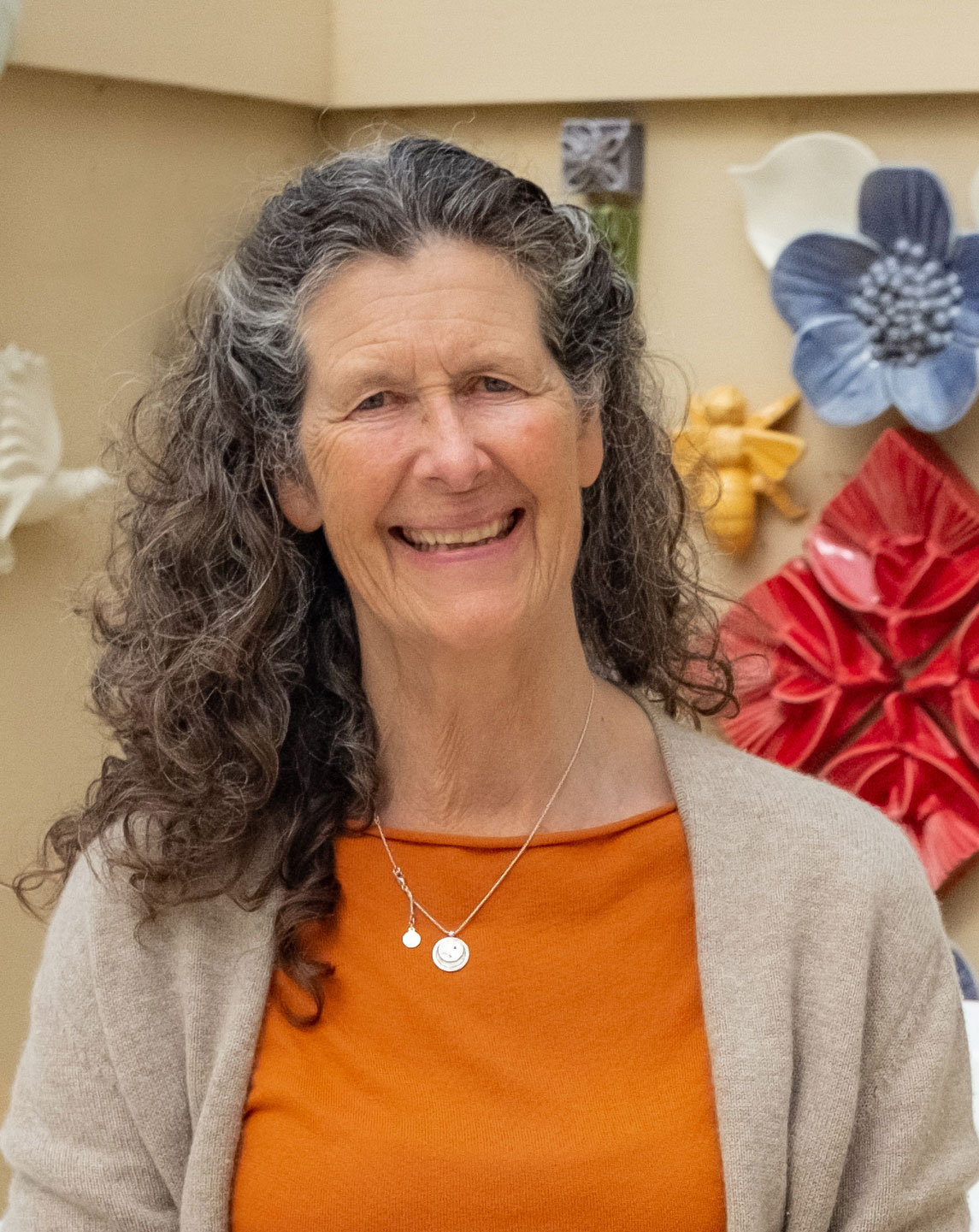
Dr Carol McAllum is the Director of Quality and Partnerships at Mercy Hospice. She is a palliative medicine specialist and continues to work as one of our senior doctors in the Inpatient Unit and the community. Thank you, Carol, for making time in your busy schedule to talk with us about your palliative care philosophy and how you view and respond to loss.
Could you tell us about your experience of loss and its impact on you as a clinician?
You know, I’m now 40 years into being a doctor, so experiencing loss is something that’s changed or matured in me over time. I know more now because I know what doesn’t work. I like growing older. In the same way, if I think about your question,
I don’t see loss on its own. I actually see gain. Where there is loss, there is gain. I see living life in many different ways and dying is a natural part of living. There’s so much to gain being close to people who are dying or experiencing loss. It’s something that enhances connection.
I heard a remarkable story while I was on duty over the weekend. I’d been told by two nurses that there was a tūī outside. It came tapping at one of the windows of the Inpatient Unit. It was outside and tap, tap, tap, it wanted to get in. No luck. So, it went around to another window. Tap, tap, tap. It looked like it wanted to get in. A little while later, somehow it’s inside, having found its way into the main foyer. It flies straight into a patient’s room, hopped about on the floor and the table next to the patient.
The lady in the bed says “Ah. That’s my brother.” And the tūī left through a window in the patient’s room. Later, again it was seen tapping on the window, and it came in a second time! So, something was happening with the tūī and this lady. I do feel that while some things are lost, other things are going on. Something is gained. It’s just that we can’t always articulate it or see it.

Another time, I was with a patient and their family, and I could see that the time was getting closer to the last breath. Something, I’m not sure what, made me want to tell the family that although it looks as if your parent is unreachable in this coma-like state, there is still living and there are still things going on for them. They may look as if they will never rouse again, and that they are not aware of us. But all of a sudden it looks like they want to get up out of bed, or want to go somewhere, or they might open their eyes, look at you, close their eyes and then take their last breaths. A little time passed, and I returned to the room and noticed that the lady had died very peacefully. A family member turned to me and said, “She opened her eyes and looked at us all, then closed her eyes and took her last breath”. Now, I don’t know if she was listening to what I’d said earlier. And how often does that happen? Well, it happens often enough for me to share that story. It’s a bit of magic.
So, there’s a whole amount of loss going on in that moment, but in this case, that image of their loved one making that seemingly intentional eye contact then was humbling. I could see that they were really touched. In that moment there was an unmistakable profound connection. Something was happening.
Around loss there’s a lot of sadness, a lot of tears. It’s like an injury that takes healing and leaves scars sometimes. These scars might fade with time but never go away. But there’s something that’s rich that can remain. Where there is loss, there is gain.
In my former life as a general practitioner, I looked after people for a period of years. And of course, as we get older, we lose things: the sharpness of our thinking, our dexterity. But there’s gain in other ways; a gain of moving towards a reconciliation of a wholeness, of acceptance, which not everyone wants, but it’s amazing, especially in young people, maybe children, people in their 20s, 30s. They’re often more calm or reconciled or ‘whole’ than their family members or friends around them. I see those who are dying console those around them. Something that is lost forever endures.
What’s been the effect of witnessing these gains on you?
It’s probably kept me going. There’s a touch of magic.
It’s a buzz, oh my, that happened! Remember the lady I mentioned earlier, who hadn’t been communicating and suddenly opened her eyes, looked around at her family and then very peacefully took her last breath? Well, when the family talked about this, their eyes lit up as they described what she did. They said “Oh, she did this!”. Now that’s something special. They’ve got an energy; something that’ll stay with them forever.
I remember another relatively young couple at Mercy. She was in her late 40s as was her partner. I saw them not long after she’d died and her partner was still with her, and I said, “How are you?”. He said, “I was given a gift”. “Oh yes?”
I said, “tell me more”. He told me that the nurse on duty that night had come in and seen that there had been some changes, and that death was probably going to happen in the next half hour or so. The nurse said “I think this is going to happen soon”. He said he became wide awake, the dog hopped on the bed, and they were fully alert and present as they stayed with her. For him, it was the greatest gift to be given that time with her. So he went away with sadness, yes, but also a gift. It’s not all about loss. Some things are lost, but some are gained.
I see a lot of grace too. For the person who is dying, I have seen them literally reach out and console their family members and friends: it’s a real role-reversal. Not everyone, some people fight to the end. But I’ve seen a lot of grace and that is so touching. It’s a transfer of energy, that’s what I see. Some people don’t want to know that their life is short, and they want to deny it, but you can only deny something you know. So, loss of some things is inevitable, and it’s transformed into something else.
What practical things help you to deal with loss?
So, loss, as we understand it is about loss of function, social connections, cognition, independence, possibility, identity, roles in the family.
For me, there’s an inevitability about it, so our challenge is how can we make it the best for this person, and I think a big part of that is listening. What I find is I might be asked to see someone, and I’ll be told about all the real dramatic life events that this person has experienced, many, many sad stories. I’ll be apprehensive when I go in but the best way for me to deal with it is to go and sit down and listen. That’s the most peaceful thing I can do.
For me not to confront the loss is more distressing than confronting the loss and doing that alongside people. So, I’m a real ‘joy germ’. For example, I might meet someone who says ‘I might never be able to walk again’, and I’ll say ‘I think you’re right’, and I’ll sit beside them and say ‘that’s really lousy.’ And we’ll sit in the silence together and see what comes up. And that’s holding other peoples’ loss. Helpful for them, but also helpful for me. Sometimes you do everything you can, and then there’s the chance to just sit with them.
I know people will be sad. I know there will be healing. And I know there will be remembrances. Things will find their place.
What gets you through experiences of loss?
Sharing. There’s nothing in my era of becoming a doctor that encouraged me to share my experiences, acknowledge my weaknesses or ask for help. You find yourself thinking, I have to hold it all in and the buck stops with me. But I know that if I share things with people, it’s so much better. Even a little bit with a friend or colleague is helpful. Doctors are a funny breed, we’re all about responsibility. Nurses are good at communicating with each other; they have their own networks.
Just over the weekend I noticed a group of nurses talking about how it was for them looking after a patient who needed ‘turning’ in their bed. It was just good to hear them talking about their struggles. Their talking was like when we anoint a wound; it assists with the healing.
Sometimes I invite myself in to help the nurses. If they need an extra pair of hands turning a patient for instance, I’ll say “Will I do? Can you coach me about what to do? You’ll need to tell me.” I think as I’ve got older, one of the things I do to cope, more and more, is I do what I feel makes sense or feels comfortable to me, so I’m treating me by being beside the nurses, by witnessing what they witness, so that I know what they’re dealing with.
This also helps me with making decisions about pain management.
I’m also someone who likes walking by the beach, completing jigsaw puzzles, putting on my music or listening to a podcast. I’ll happily enjoy those things for a couple of peaceful, quiet hours. It helps to restore me. Light and water, that’s what really helps.
Share this Mercy Story

Do you have a Mercy story you would like to share with readers of Mercy Matters?
Send your story and images to [email protected].
Continue the Care. Click here to make a safe online donation to Mercy Hospice
Related posts
If you enjoyed reading this, then please explore our other articles below:
